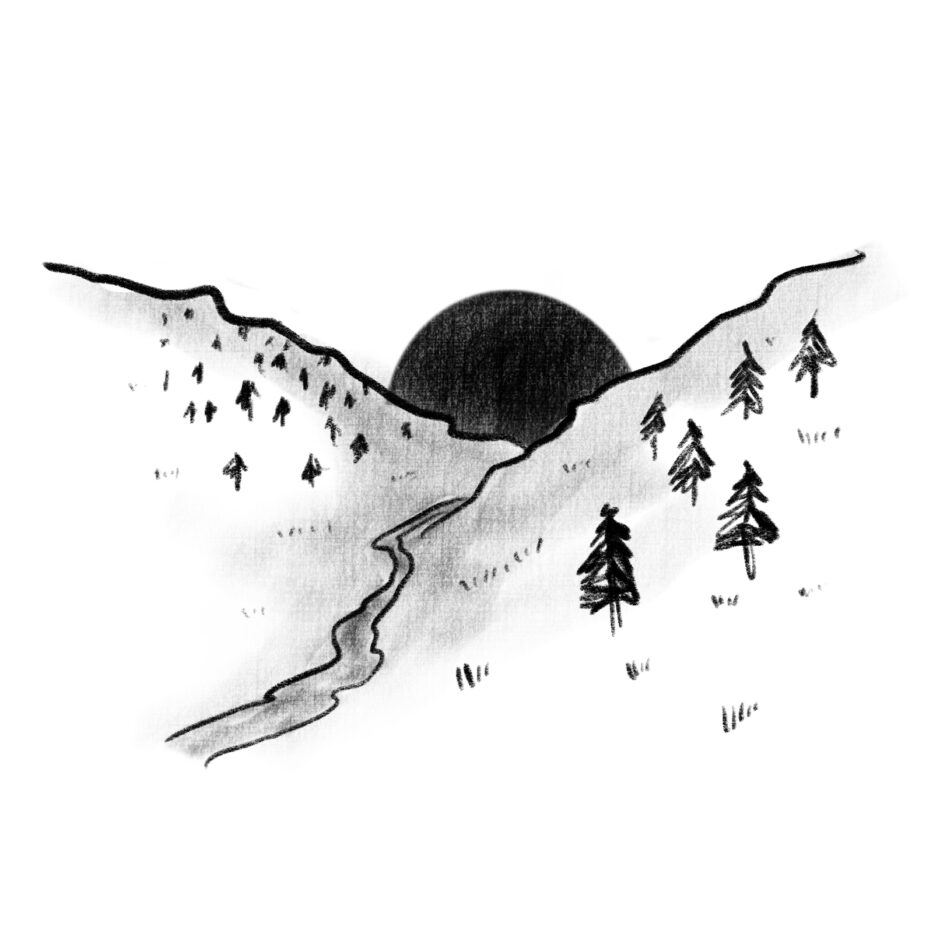
Image by Ivy Sanders Schneider

Image by Ivy Sanders Schneider
Yakup Şekip Okumuşoğlu has dedicated his life to a cause bound to fail. He is the primary counsel for the protest movement fighting to protect the İskencedere valley in the northern Turkish province of Rize. Every day since March 2021, he and dozens of fellow İkizdere activists have thrown everything they can — lawsuits, vocal pleas, and even their bodies — in front of the heavy machinery brought in by a government-linked mining company to chip away at the mouth of the valley.
The struggle in Rize began when the Turkish government announced that the environmentally protected status of İskencedere valley would be lifted and a mining tender granted to Cengiz Holding, which is headed by Mehmet Cengiz, one of the richest people in Turkey and a close friend of President Recep Tayyip Erdoğan.
“We were never going to win this case because of the company behind it,” Okumuşoğlu said.
Erdoğan and Cengiz both hail from the Black Sea Region — Cengiz himself from a valley near the one he hopes to mine. İkizdere is not the only resistance Cengiz Holding is trying to fend off. They have controversial projects across Turkey, such as in Bodrum’s Cennet Koyu (“Paradise Beach”). But İkizdere is different because locals have long been strong supporters of Erdoğan’s AKP party, even through the economic crisis currently threatening AKP’s popularity, and 2023 election prospects. In local elections in 2019, the AKP-MHP ruling alliance won 98 percent of the vote.
“We always embraced the state,” 67-year-old Ayşe Baş, a leader of the protest movement, told me over the phone. “That’s why we don’t understand why they did this to us.”
Until now, İkizdere was “like heaven,” she said. The villagers grew tea and vegetables and fruit and cared for their animals amidst chestnut trees and freshwater streams. “You’ve never seen such a beautiful place in your life.”
Then, the machinery moved in. Dynamite from quarries blew dust into the once-clean air. Earth and chemical slurries clouded the formerly pure water. Drinking water had to be shipped in, the bees died, and the gardens went fallow.
So the villagers — wrapped in sweaters and shawls, many with walking sticks in hand — trekked up to where the machines were carving wounds into the valley’s sides. They tried to block the machines, to tell the workers about the life being extinguished. Then, the Jandarma — local law enforcement — were called in.
They used tear gas, riot shields, and batons against the protesters, many of them old, and most of them women. Baş says she fell to the ground, crying, batons repeatedly striking her back. When she thinks about what she endured, she still begins to weep.
But, undeterred, she and her fellow activists stood guard for over a year. Baş personally sheltered over 35 protesters in her small house. Meanwhile, Okumuşoğlu filed multiple suits to stay the project, facing constant rejection from a judiciary safely controlled by the AKP. Eventually, based on a single report submitted by the defense and altered in favor of Cengiz Holding, the judge ruled the mining could proceed.
The villagers were widely praised as heroes on Turkish social media, but as everyone predicted, they lost. Little hope remains that they’ll be able to stop the project.
“All I can hope is that it had some effect,” Baş said.
Erin O’Brien is a freelance reporter based in Istanbul, Turkey, whose work primarily focuses on the broader social implications of politics, violence, and corruption.